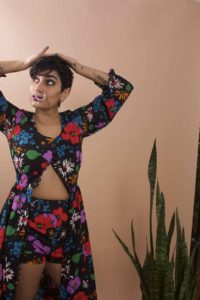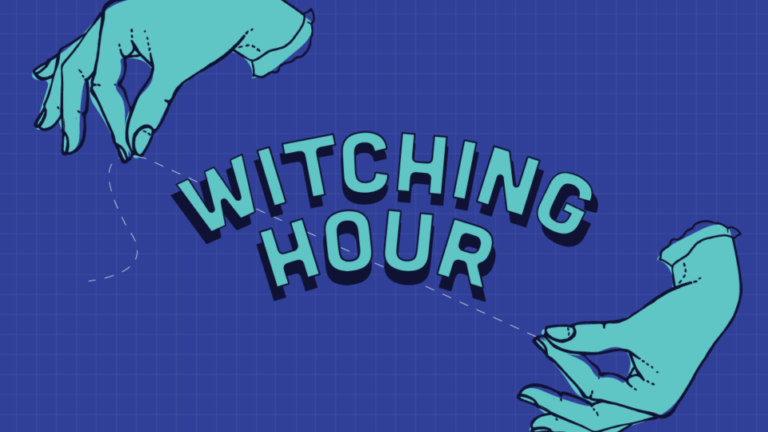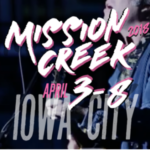I arrived at the Englert far too early before the Writers of Color Reading Series began. I ran into my friend, Aimee, before she went inside to wait for her turn to read later that night. The headlining reader and keynote speaker was going to be Fatimah Asghar.
To read a review of the local readers at the Writers of Color Reading Series, check out Onae’s article on krui.fm

I first hears Asghar’s name on a podcast. She was a guest on VS, hosted by Danez Smith (who visited Iowa City for last year’s Writers of Color Reading Series) and Franny Choi. This is where I heard her read her poem “If They Come for Us” and completely fell in love with her voice. I went to Prairie Lights and bought her book of the same title the next day.
Her track record is, to say the least, entirely impressive.
Asghar wrote “Brown Girls”, an Emmy-nominated web series about friendships among women of color. She has published two books, “After” and “If They Come for Us”, the latter of which she read from at the Englert. She created a spoken work poetry group in Bosnia and Herzegovina named REFLEKS.
Her work has been published in POETRY Magazine, Buzzfeed Reader, Gulf Coast, and many more. It is an honor to have such a talented writer in Iowa City, reading on the Englert stage.
When she gets on stage, she starts with her poem “Old Country”, which is about her family eating at Old Country buffet extremely often, and how that bridged her way into understanding more about American culture.
“Here we learned how to say I too have had meatloaf & hate it“. “Here we loosened the drawstrings on our shalwaars & gained ten pounds.” Asghar makes it known early on that her poetry is both comedic and raw, and that she knows how to blend the two perfectly. After she is done reading, she proudly deems herself a “buffet ass hoe”.

Next, she addresses the crowd. “Is anyone here Muslim?” When there is loud silence, she just responds with “Crickets, huh?”
Then she reads “Halal” and “Partition”, delving deeper into herself as a Muslim woman through her words. Before she reads “Partition”, she provides for the audience an epigraph describing what the Partition of India in 1947 was and what it did.
The British government split India into two countries, India and Pakistan, to split Hindus and Muslims, aiming to limit bloodshed. 14 million people were forced into migration. 1-2 people died and an estimated 75,000 to 100,000 women were abducted and raped.
In Asghar’s poem “Partition”, she writes “When he leaves we sit at the base of the blue wall & I laugh loud so Auntie A knows I’m alive & ok & she laughs loud so I know she hasn’t left.” She relates a gigantic tragedy to her own family, and perfectly relates how long a historical tragedy can impact people, within or outside the context of their culture.
She reads her next two poems. “When the Orders Came” was first, prefaced by a Trump administration quote announcing the Muslim travel ban. “Boy” was second, about hyper-masculinity and the damage it can cause.
“How is everyone feeling?” Asghar asks. “Kind of sad?”
Her last poem of the night was the same I was introduced to her through, “If They Come for Us”. It was even more incredible than hearing it through car speakers as I had the first time.
I would deeply recommend finding Asghar’s book at the Public Library, University Main Library, or at Prairie Lights. I learned so much from Asghar’s poetry, and that experience was only widely expanded from seeing her say it aloud.
Here is a video of Asghar reading another one of my favorites of hers, “Pluto Shits on the Universe”




